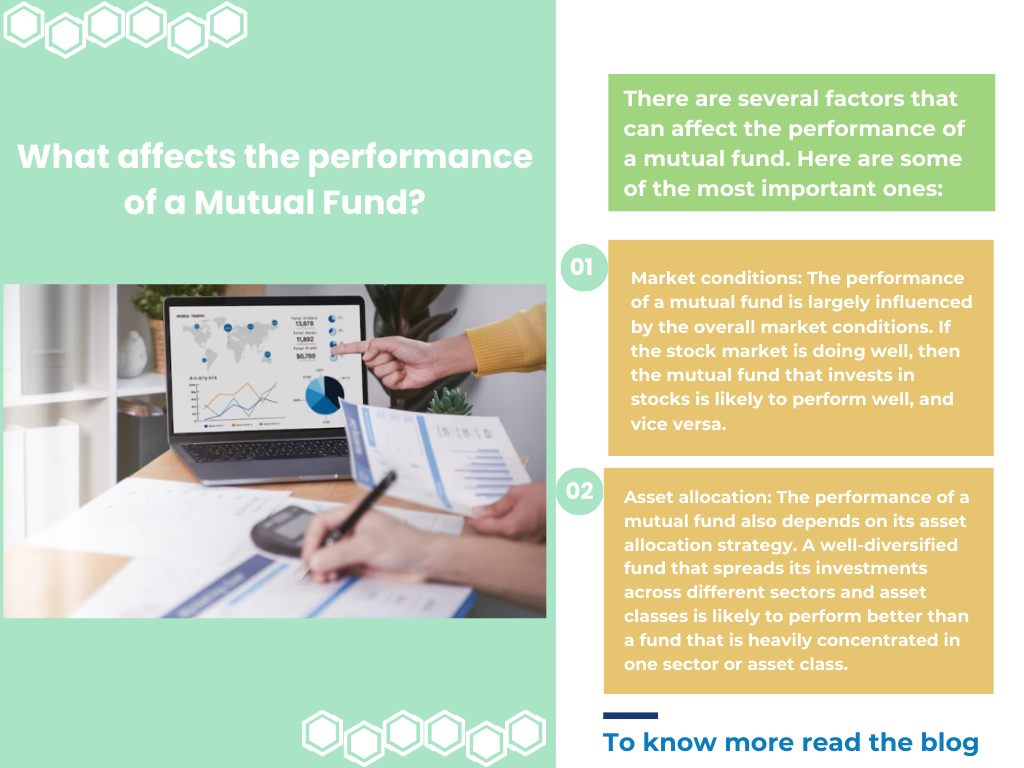What affects the performance of a Mutual Fund?
There are several factors that can affect the performance of a mutual fund. Here are some of the most important ones:
Market conditions: The performance of a mutual fund is largely influenced by the overall market conditions. If the stock market is doing well, then the mutual fund that invests in stocks is likely to perform well, and vice versa.
Asset allocation: The performance of a mutual fund also depends on its asset allocation strategy. A well-diversified fund that spreads its investments across different sectors and asset classes is likely to perform better than a fund that is heavily concentrated in one sector or asset class.
Fund manager's skill and experience: The performance of a mutual fund is also influenced by the skill and experience of its fund manager. A talented and experienced manager is likely to make better investment decisions and generate higher returns for investors.
Fees and expenses: The fees and expenses charged by a mutual fund can also affect its performance. Higher fees can eat into the fund's returns, so it's important to consider the expense ratio of a mutual fund before investing.
Investor sentiment: The performance of a mutual fund can also be affected by investor sentiment. If investors are optimistic about the future of the market and the economy, they may be more likely to invest in mutual funds, which can drive up the fund's performance.
Overall, the performance of a mutual fund is influenced by a wide range of factors, including market conditions, asset allocation, fund manager's skill and experience, fees and expenses, and investor sentiment. By carefully evaluating these factors, investors can choose mutual funds that are likely to perform well over the long term.


